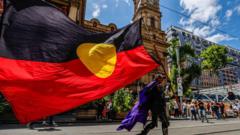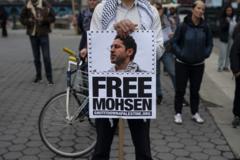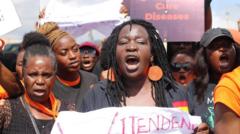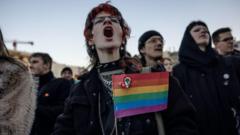The Australian Senate voted to censure Lidia Thorpe, an Aboriginal senator, following her vocal protest against King Charles during his recent visit to Canberra. Thorpe's outburst—deeming the King "not my King" and declaring "this is not your land"—was aimed at shedding light on the damaging effects of British colonization. With a censure motion passing 46-12, the Senate deemed her actions "disrespectful and disruptive," asserting they disqualified her from representing the chamber on delegations. Despite the symbolic nature of the censure, Thorpe, influenced by delays that prevented her from responding in the chamber, expressed her commitment to speaking out against the historical injustices faced by Indigenous peoples.
Censure of Senator Thorpe Sparks Debate on Indigenous Rights and Disrespect to Monarchy
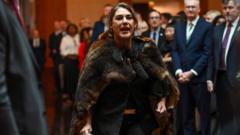
Censure of Senator Thorpe Sparks Debate on Indigenous Rights and Disrespect to Monarchy
Australian Senator Lidia Thorpe's heckling of King Charles during his visit has ignited discussions regarding Indigenous rights, colonial history, and political responses to dissent.
While her protest faced criticism from many in leadership and some Aboriginal leaders, it garnered support from activists advocates who viewed it as an important reminder of the struggles faced by Australians' first inhabitants, who continue to endure disparities in various social indices. Prime Minister Anthony Albanese acknowledged the King's respectful reception in Australia during his five-day visit. Notably, Thorpe's past actions, including labeling the late Queen Elizabeth II a colonizer during her swearing-in, reflect her ongoing advocacy for Indigenous rights, often leading to polarized opinions. Previous attempts to recognize Aboriginal and Torres Strait Islander peoples constitutionally faced stiff opposition, particularly a recent referendum that sparked contentious debate. This environment raises questions about the extent and manner of addressing these historical grievances in contemporary Australian politics.
Powered by both criticism and support, the incident underscores ongoing tensions between respecting historical figures and addressing past injustices. It brings to the forefront crucial conversations about the representation of Indigenous voices and the complexities of post-colonial identity in Australia.
By examining this event from multiple angles, we aim to clarify the broader implications it raises for political discourse and Indigenous rights in the nation.
Powered by both criticism and support, the incident underscores ongoing tensions between respecting historical figures and addressing past injustices. It brings to the forefront crucial conversations about the representation of Indigenous voices and the complexities of post-colonial identity in Australia.
By examining this event from multiple angles, we aim to clarify the broader implications it raises for political discourse and Indigenous rights in the nation.





